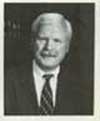STATEHOUSE INSIDERISSUES & INSIGHTS FROM THE LEGAL / LEGISLATIVE SCENEGeorge Ryan Wins; |
 PERTER M. MURRPHY
IAPD General Counsel
This legislation is a result of a case involving an unfortunate drowning that took place at a park district (Barnett V. Zion Park District). The governor's amendatory veto hits that nail on the head by changing the bill to address only the area of swimming pools by imposing liability in all instances where a local government was willful and wanton. Rather than opening the floodgates of litigation as HB 1151 would do as currently drafted, the governor's changes make common sense. IAPD supports Edgar's amendatory veto and opposes any attempt to override by the General Assembly. It is expected that the House will attempt to override the governor's veto during the first week of the veto session (Nov.17-19).
Other action includes the passage of the Public Funds Investment Act (SB 1555, Public Act 90-688) requiring every public agency to be governed by a written investment policy addressing more than 12 different specific policy requirements. The investment policy is required to be developed and implemented by January 1, 2000.
Public Act 90-701 permits local records to be digitized for convenience in retention. For records that are required to be permanently retained, the new law states that they are also to be reproduced in a microfilm format that is in compliance with commission regulations.
The State Gift Ban Act (HB 3672) passed as Public Act 90-737. It copies the current congressional gift ban language and applies to state and local government officials and employees.
The legislation requires local governments to adopt ordinances that are at least as restrictive as the new state law would be, within six months of the act's effective date. The act contains a blanket prohibition on the official solicitation or acceptance of any gift to a state elected or appointed official or employee of the executive, legislative or judicial branches from a
|
Pages:|1 ||2 | |3 ||4 | |5 ||6 | |7 ||8 | |9 ||10 | Pages:|11 ||12 | |13 ||14 | |15 ||16 | |17 ||18 | |19 ||20 |
Pages:|21 ||22 | |23 ||24 | |25 ||26 | |27 ||28 | |28a ||28b| |28c ||28d| |29 ||30 |
Pages:|31 ||32 | |33 ||34 | |35 ||36 | |37 ||38 | |39 ||40 |
Pages:|41 ||42 | |43 ||44 | |45 ||46 | |47 ||48 | |49 ||50 | Pages:|51 ||52 | |53 ||54 | |55 ||56 |